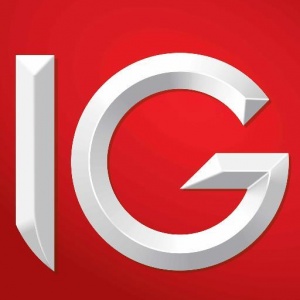How Global Sporting Events Could Make Your Holiday More Expensive

Whether it’s a city break or a sea-view, your holiday spending money can be influenced by a number of factors such as the political events, a natural disaster or the economic climate. Even a sporting event can influence the exchange rates you pay, and with the Rugby World Cup upon us, we look at how your holiday money could be affected.
Holidaymakers may behave differently during sporting events and markets will often prepare for changes in tourist spending habits. If you are visiting a country for a tournament you are more likely to spend time in the stadiums and surrounding bars, rather than looking around tourist sites.
It is too early to say what economic impact the Rugby World Cup could have on the UK, especially in such volatile times, but there are similar sporting events that give a strong indication.
The 2012 London Olympics gave an economic boost of almost £10billion to the UK, according to government figures. A report for the UK Trade and Investment department said the Olympics resulted in £2.5 billion of ‘additional inward investment’, £5.9 billion additional sales and £1.5 billion high value overseas contracts - such as helping to design venues in other host-nations
However, this is not necessarily good news for the wider economy or holidaymakers with less interest in sport.
Data from the Office for National Statistics showed that of the 590,000 people who came for the Olympics or attended a similar ticketed event, spent almost double than other visitors - on average, they spent £1,290 compared with £650. There were fewer people visiting theatres, museums and using public transport during the games as many wanted to avoid the crowds.
Exchange rates are a strong indication of the economic strength of a country. Sport can have an influence, especially in major tournaments like a world cup as traders are keeping an eye out for signs of positive economic performance such as retail sales or consumer confidence.
Exchange rates can change constantly, both pre-emptively and reactively. The tourism industry in particular often takes pre-emptive action with exchange rates and you will see the cost of flights and accommodation increase ahead of and during sporting events.
Sporting results can also shift the Forex markets, which affects how far your spending money goes. Currencies can rise as traders see a sporting victory as a strong economic sign so buy into the currency. When England won their first ever Rugby World Cup in 2003 the pound rose 700 points against the US dollar. Similarly, the rand rose 7 per cent against sterling when South Africa won the Rugby World Cup in 2007.
A stronger pound is good news for holidaymakers going abroad as it means their money goes further. But that also means it will be more expensive for overseas visitors coming to the UK.
As well as currencies, consumer brands are also set to benefit from increased awareness and media coverage.
Heineken
Heineken is one of the primary sponsors and only its beers can be sold within 500 meters of the tournament stadiums. This gives it a monopoly among fans at the games, which should boost its sales figures. It also provides an opportunity to promote itself directly to new and existing customers through events and adverts.
02
02 is using its clout as a concert venue and mobile phone provider to reach consumers both on and offline. This should help its brand awareness and bring in new customers, particularly those attracted to its 02 Priority event offers that provide early-ticket sales for big occasions.
England may already be out of the tournament, but O2 is still offering ways for fans to stay involved, such as with its Wear the Rose online game letting you create characters in the national kit.

